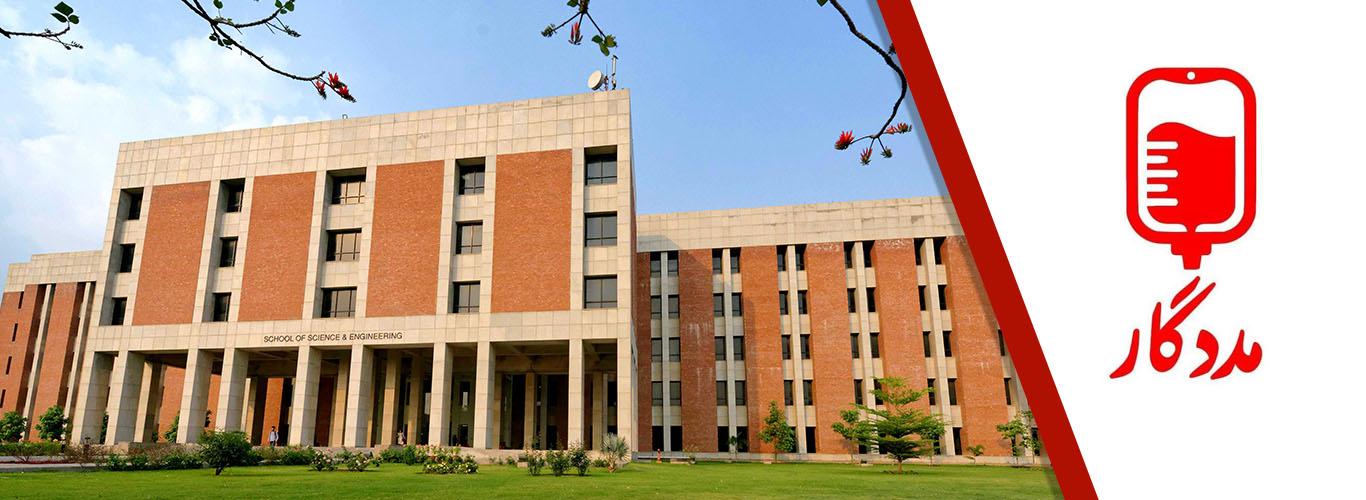Madadgaar: A Convenient Blood Donation Platform
In the current climate of the pandemic, many students at LUMS have directed their efforts to alleviate the situation by setting up non-profit foundations, donation systems and charities. Madadgaar is one such initiative that aims to simplify the process of blood donation and make it accessible and easier for the general population.
The project is initiated by a group of students from the Syed Babar Ali School of Science and Engineering (SBASSE) including Taimoor Arif, Muhammad Nouman Abbasi, Muhammad Hassan Mahad, Zoraiz Qureshi, Muhammad Bilal Naeem, Punnal Ismail Khan and Ayaz Ur Rehman.
Working under the supervision of Dr. Suleman Shahid, Assistant Professor and Director LUMS Learning Institute, the students initiated the project a month ago with the primary aim to provide a convenient platform that would connect COVID-19 patients to recovered plasma donors. Manually connecting with donors is an exhaustive and time-consuming process. Madadgaar eliminates unnecessary delays by creating a peer-to-peer blood donation system and makes the connection between the donor and the recipient fast and secure.
Project Lead Taimoor Arif spoke about the need to increase the scale and outreach of Madadgaar. “We are currently working on increasing its user base, so that we can have maximum donors available. We aim to make Madadgaar the biggest platform of its kind.”
The team conducted extensive research to create an interface that is simple and user-friendly, even for those with no technological experience. The platform is equipped with an automated notification system that matches the recipients to donors within their city. It includes various other features, such as quick one-time requests, multiple requests for organisations or hospitals, the option for complete anonymity, and automated forwarding of necessary details to potential donors.
The students are now working on scaling up Madadgaar into a general blood donation platform and connecting it with blood banks in order to increase its user base and, consequently, serve more people. They also intend to introduce an Urdu interface to make the platform bilingual and drastically easier to use for the Pakistani population.
More details about the initiative can be found on their website.























